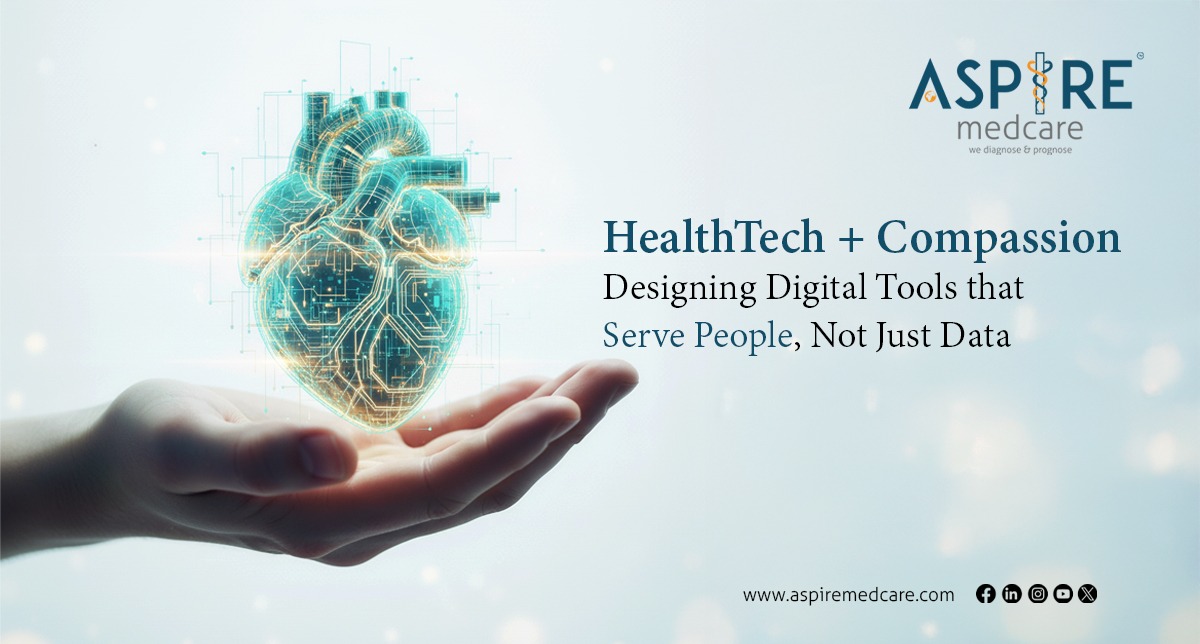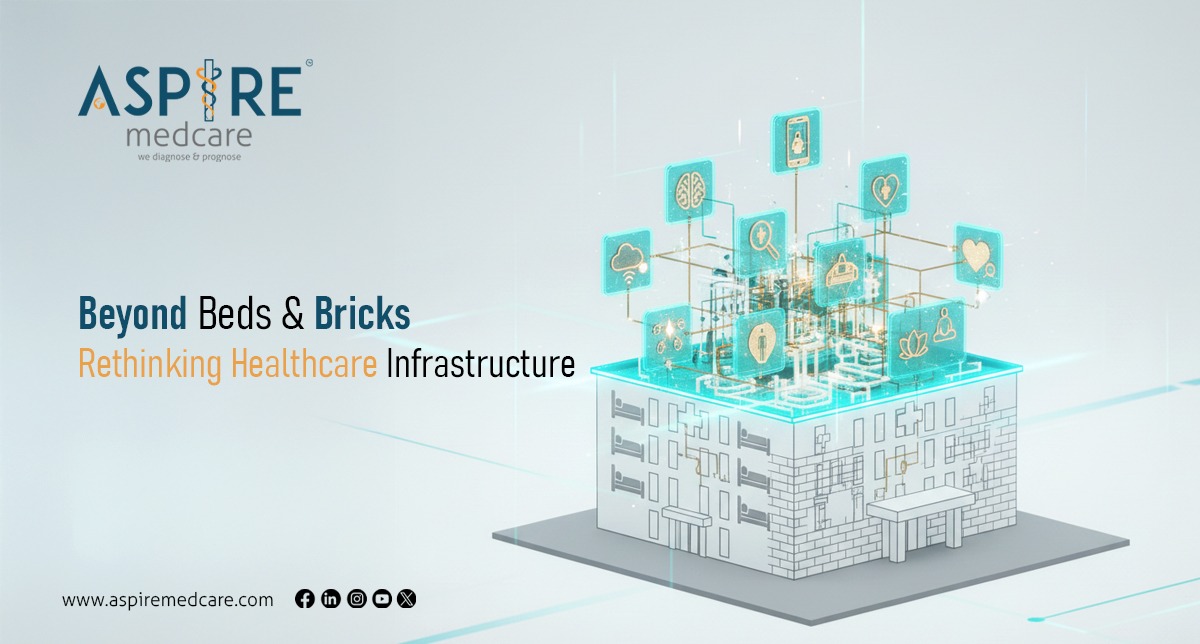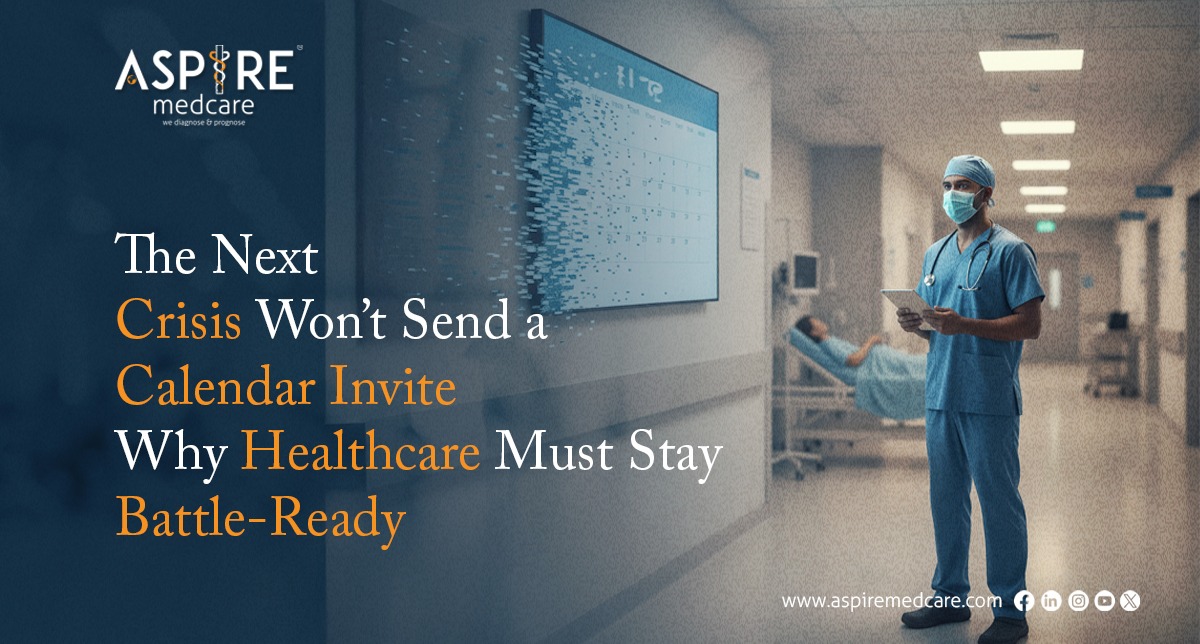HealthTech + Compassion: Designing Digital Tools that Serve People, Not Just Data

At Aspire Medcare, we’ve always believed that healthcare is not about numbers on a dashboard or charts on a screen. It’s about people — the ones waiting anxiously in corridors, the families looking for answers, the doctors and nurses who show up every day to carry more than just responsibility.
Technology, when built with empathy, can walk beside them. It can ease pressure, bring clarity, and help decisions come faster. But when it forgets who it’s serving, it quietly becomes another layer between people and care.
That’s why, for us, the question has never been “What can technology do?” It’s always been “Who does it help, and how does it feel to use it?”
When “Smarter” Turns into “Harder”
Healthcare tools today are built to impress — full of features, dashboards, and data visualizations. But step into a ward, and you’ll see how quickly “smart” can become stressful. A nurse doesn’t have time to scroll through ten menus. A caregiver shouldn’t need a manual to read a report.
Complexity doesn’t heal. Clarity does. Good design knows when to simplify. Sometimes it’s one calm alert instead of a dozen flashing ones. Sometimes it’s a single screen that tells the full story.
At Aspire Medcare, we remind ourselves: the purpose of technology isn’t to show everything. It’s to make the right thing visible, at the right time.
Designing With Ears, Not Just Hands
Human-centred design starts with something very simple — listening.
We’ve sat with doctors who’ve said, “I just want the system to understand how I work, not the other way around.” We’ve spoken to patients who’ve confessed, “Half my anxiety comes from not understanding what the screen says.”
We’ve heard families whisper, “I’m scared I might miss something important.”
Those voices shape everything we build and recommend. Because design isn’t just what we see — it’s what stays with us for a longer period of time. It’s primary goal is to turn a patient’s fear into familiarity, and their confusion into clarity.
Automation Should Never Silence the Human Voice
Automation saves time. It prevents mistakes. It reminds and records. But care doesn’t come from reminders — it comes from reassurance. When every device is beeping, the one critical alert might get ignored. When every action is automated, the personal touch starts fading.
So, at Aspire Medcare, we draw a clear line — technology can assist, but it should never replace empathy. No software can comfort a worried family or read what fear looks like in a patient’s eyes. That’s the part of care that belongs only to people.
Trust: The Real Foundation of Digital Care
Every number on a health report is a story in itself — a patient waiting for answers, a family holding onto hope, a doctor doing their best to heal. That’s why, at Aspire Medcare, privacy and consent aren’t just policies we follow — they’re promises we uphold.
Because once trust is lost, no innovation can truly heal the damage. For us, data security is not a technical function — it’s an ethical one. Because when people trust the system, they lean into care without hesitation. And that changes outcomes.
Breaking the Silos, Joining the Dots
If you ask any clinician what slows them down, the answer comes fast — disconnected systems. Patient records in one portal. Lab results in another. Radiology somewhere else.
By the time everything comes together, time — and sometimes opportunity — is lost. When systems finally talk to each other, care becomes smoother. Doctors see the full picture. Families stop running between departments. And patients stop feeling like case files — they start feeling like people again.
What Makes a “Good” Tool?
It’s not the colours of a dashboard or the number of graphs it shows. A good tool is one that makes someone breathe a little easier. It’s the one that helps a doctor make a confident call. It’s the one that lets a patient rest without worry.
Bad tools make people feel small. Good tools make them feel in control. And that difference has nothing to do with software — it’s a human choice made during design.
The Future Is Bright — But Only If It Stays Human
AI, wearables, predictive analytics — these aren’t faraway dreams anymore. They’re already here. But before we celebrate what’s new, we ask one simple question:Does it make care more human?
If the answer is yes, we welcome it. If not, we wait. Because innovation without any empathy is simply plain noise in a room that’s already quite loud.
Keeping Care Human
Technology will keep changing. But healing — real healing — will always come from people. From a steady hand. From a kind word. From a sense of dignity that no machine can deliver.
At Aspire Medcare, compassion is not an add-on. It’s the very system we operate on. Every digital tool we support is measured against one promise —does it bring humanity closer to the heart of healthcare?
Because when the machines quiet down and the lights dim, patients won’t remember the interface or the algorithm.
They’ll remember how they were treated. And that is where healthcare finds its true purpose.


